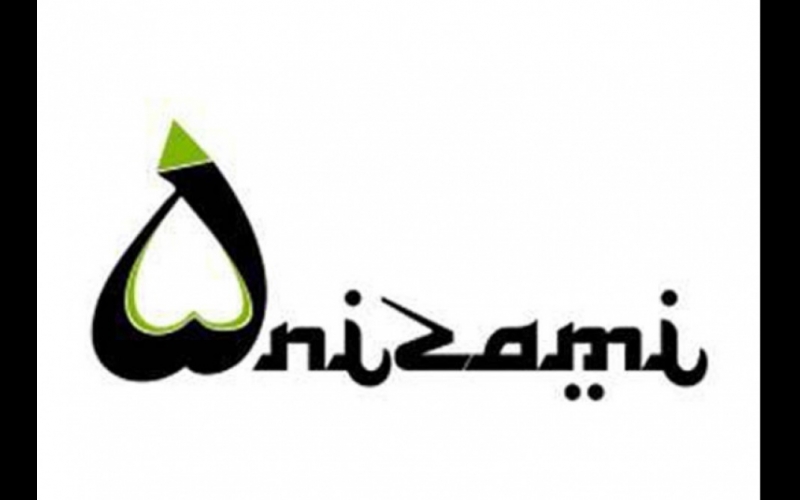
The co-chairs and members of the Board of Nizami Ganjavi International Center have issued a statement titled "Peace and Justice for Nagorno-Karabakh".
AZERTAC presents the statement.
"We fully support the territorial integrity and sovereignty of the Republic of Azerbaijan within the borders as recognized by the United Nations and the whole international community.
Azerbaijan has received strong international legal support; no less than four resolutions of the UN Security Council demanding unconditional withdrawal of the Armenian troops from the occupied territories. That and the international community has reaffirmed that it does not recognize the acquisition of territory by war. The situation resulting from the illegal use of force can in no way be justified.
We strongly condemn indiscriminate targeting of Azerbaijani civilians and civilian objects along the border of Armenia and Azerbaijan. Illegal activities, as well as illicit settlement in the occupied lands of Azerbaijan must be ceased.
And today, despite the provocations and the breach of the ceasefire agreement, Azerbaijan is seeking redress through the appropriate legal channels, not rushing into armed response. Conflict is frequently indecisive, and invariably costly in blood as well as resources.
This is the time to activate all possible diplomatic channels, the UN and the European Union should call for an immediate ceasefire, and use every means available at the international level to prevent any further military action. But it is also essential to advance the search for a final settlement of that long-standing conflict. To work for peace through peaceful means, that is one of the tenets of the Nizami Ganjavi International Center (NGIC). Thus, we call on the international community to live up to its previous resolutions, particularly United Nations Security Council Resolutions to restore the territorial integrity of Azerbaijan under international law, ensure withdrawal of Armenian armed forces from all seized lands of Azerbaijan as demanded and hopefully reach a lasting settlement of the Armenia-Azerbaijan conflict.
The negotiation process mediated by the OSCE Minsk Group co-chairs – Russia, France and the United States – has not brought any tangible result for the resolution of conflict. The co-chairs based on their mandate stemming from the Helsinki Final Act and the UNSCR should redouble their efforts to ensure meaningful negotiations towards achieving lasting peace.
At a time when all of humanity is fighting a common enemy in the Coronavirus and COVID-19, it is not sensible for humanity to divert our energies and resources to unleash death and destruction on each other. Let us appeal to reason and the rule of law in our pursuit of a peaceful and just settlement to the conflict of Nagorno-Karabakh.
Peace, true peace, is more than the cessasion of war. It can only be built on justsice and inclusion. That is a fitting task for the EU to assist in bringing about, and it would be an appropriate revival of the spirit of the United Nations on its 75th birthday. So let us work with the international community to overcome the unjust legacies of the past, to address our global challenges and to lay the foundations for better tomorrows.
Vaira Vike-Freiberga: co-chair NGIC, President of Latvia 1999-2007
Ismail Serageldin, co-chair NGIC, vice-president of the World Bank 1992-2000
H.R.H. Prince Turki bin Faisal Al Saud, Chairman of King Faisal Foundation’s Center for Research and Islamic Studies
Abdulaziz Altwaijri, former Director General of ICESCO
Shaukat Aziz, Prime Minister of Pakistan 2004-2007
Rashid Alimov, Secretary General of Shanghai Cooperation Organization 2016-2019
Rosalia Arteago, former President of Ecuador
Sali Berisha, President of Albania 1992-1997, Prime Minister 2005-2013
Hikmet Cetin, Minister of Foreign Affairs of Turkey 1991-1994
Emil Constantinescu, President of Romania 1996-2000
Mirko Cvetkovic, Prime Minister of Serbia 2008-2012
Franco Frattini, Minister of Foreign Affairs of Italy 2002-2004; 2008-2011, European Commissioner for Justice, Freedom and Security 2004-2008
Ameenah Gurib-Fakim, President of Mauritius 2015-2018
Jan Fisher, Prime Minister of the Czech Republic 2009-2010
Ekmeledin Ihsanoglu, Secretary-General of the Organization of Islamic Cooperation 2004-2014
Mladen Ivanic, Member of Presidency of Bosnia and Herzegovina 2014-2018
Dalia Itzik, former President of Israel, former President of Knesset
Gjorge Ivanov, President of North Macedonia 2009-2019
Ivo Josipovic, President of Croatia 2010-2015
Jadranka Kosor, Prime Minister of Croatia 2009-2011
Aleksander Kwasniewski, President of Poland 1995-2005
Yves Leterme, Prime Minister of Belgium 2008, 2009-2011
Zlatko Lagumdzija, Prime Minister 2001-2002, deputy Prime Minister, Minister of Foreign Affairs of Bosnia and Herzegovina 2012-2015
Petru Lucinschi, President of Moldova 1997-2001
Amre Moussa, Secretary General Arab League 2001-2011, Minister of Foreign Affairs of Egypt 1991-2001
Elnur Aliyev, CEO NGIC
Rovshan Muradov, Secretary-General NGIC
Rexhep Meidani, President of Albania 1997-2002
Bujar Nishani, President of Albania 2012-2017
Djoomart Otorbayev, Prime Minister of Kyrgyzstan 2014-2015
Elsa Papademetriou, former Vice-President of the Hellenic Parliament
Rosen Plevneliev, President of Bulgaria 2012-2017
Oscar Ribas Reig, Prime Minister of Andorra 1982-1984; 1990-1994
Petar Stoyanov, President of Bulgaria 1997-2002
Boris Tadic, President of Serbia 2004-2012
Eka Tkelashvili, deputy Prime Minister of Georgia 2010-2012
Filip Vujanovic, President of Montenegro 2003-2018
Viktor Yushchenko, President of Ukraine 2005-2010
Kateryna Yushchenko, First Lady of Ukraine 2005-2010
Valdis Zatlers, President of Latvia 2007-2011
Views: 494
